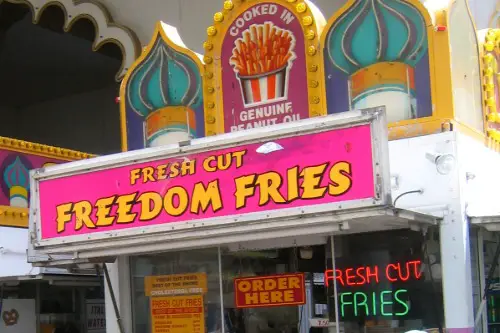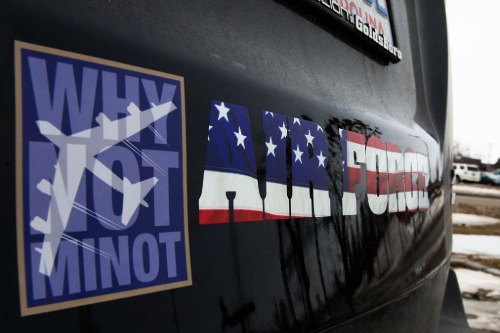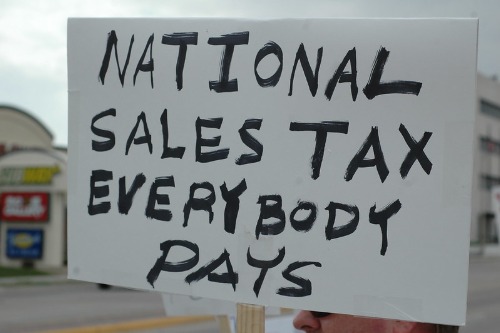1. Freedom Fries

Yes, some Americans still jokingly reference “Freedom Fries” instead of French fries during certain political moments. This quirky example of patriotism—renaming something to signal national loyalty—seems bizarre to outsiders. It’s seen as performative rather than substantive, highlighting symbolic gestures over real policy. Other countries usually don’t rename foods to make a political statement, so it feels silly to them.
But in the U.S., it’s often framed as a playful way to assert identity. There’s pride in doing something “American” and declaring it loudly, even if it’s just a fry. It becomes a small, tangible symbol of siding with the nation during global tensions. The humor and irony, though, often get lost on non-Americans.
2. Gun Ownership

Americans often equate owning a firearm with personal freedom, seeing it as a safeguard against tyranny or crime. For many outside the U.S., this connection is confusing, because widespread guns are usually associated with higher violence rather than liberty. In countries with strict gun laws, personal safety isn’t seen as a government infringement on freedom. The idea that “more guns = more freedom” just doesn’t compute in places where public safety and personal freedom coexist without firearms.
Yet, for a lot of Americans, gun culture is tied up with identity and independence. Hunting, target shooting, and collecting are hobbies, yes, but also symbolic of self-reliance. It’s more than protection—it’s about the cultural narrative of rugged individualism. That narrative, however, often confounds outsiders who view freedom more in social terms than in the right to bear arms.
3. Huge Portion Sizes

Americans love supersizing meals, and many see it as a freedom of choice. To outsiders, the obsession with enormous portions is often baffling and even alarming. In most countries, restaurant servings are modest, designed to be enough, not overwhelming. The connection between abundance and liberty seems more about excess than actual personal freedom.
Yet, the mindset is that more is better, and being able to eat as much as you want without shame feels liberating. Portion control is sometimes perceived as restricting personal autonomy. It’s less about health and more about asserting your right to indulge. For people used to structured meals, this laissez-faire approach is more confusing than freeing.
4. Open-Carry Laws

Some Americans see openly carrying a weapon in public as a fundamental freedom. In other countries, even police rarely carry guns openly, so the idea of civilians walking around with rifles is alarming. The symbolism is tied to self-defense and resistance to government overreach. For outsiders, it looks like a safety hazard masquerading as liberty.
The law itself reinforces the idea that individuals are sovereign entities capable of defending themselves. It’s about trust in personal responsibility over institutional control. To Americans, it’s a statement about autonomy, not aggression. But to most of the world, it seems more like a recipe for chaos than empowerment.
5. Flag Decals on Everything

Slapping an American flag on a car, laptop, or clothing item is often seen as a declaration of freedom and national pride. Many non-Americans interpret this as over-the-top or even gaudy. In most countries, patriotism is expressed subtly or ceremonially, not as a constant visual motif. This flashy display is more puzzling than inspiring abroad.
For Americans, it signals identity, pride, and support for the country in a tangible way. It’s also about community—aligning with a shared set of values. The act is performative, yes, but it’s deeply ingrained culturally. Outsiders may struggle to see how a sticker represents liberty rather than just decoration.
6. “Freedom to Sue” Culture

Americans often tout the right to pursue lawsuits as a hallmark of freedom. To outsiders, the frequency and aggressiveness of legal action can seem excessive or frivolous. Many countries have stricter limits on litigation, so the notion of suing anyone for almost anything is perplexing. It’s framed as empowerment but often appears litigious or obsessive to others.
The rationale is that the law is accessible to everyone, giving individuals power against corporations or institutions. Legal recourse becomes a form of equality and self-protection. While it can prevent abuses, it also fuels stereotypes of Americans as overly combative. For the rest of the world, freedom is more about privacy and protection than courtroom battles.
7. “Freedom to Carry Soda or Snacks Anywhere”

Americans love the idea of consuming food and drinks wherever they want—on planes, in theaters, on public transport. In many countries, this would be frowned upon or outright prohibited. The connection between snacking freedom and liberty is tenuous at best. Yet, it’s celebrated as personal choice in the U.S., reflecting the cultural emphasis on individual autonomy.
It’s a minor thing, but it reinforces the larger narrative that adults should be able to do whatever they want if it doesn’t directly harm others. Freedom is literally about sipping a soda in a park without asking permission. To Americans, it’s a tiny but meaningful assertion of independence. Abroad, it mostly looks like a mess waiting to happen.
8. The Right to Drive Wherever You Want

Having a car and being able to drive anywhere without heavy restrictions is often cited as a symbol of freedom in the U.S. Other countries rely on public transport, and urban planning discourages excessive personal vehicle use. To them, freedom isn’t the right to drive—it’s mobility without a car. Roads and traffic don’t necessarily equal liberty everywhere.
But in the U.S., the car is almost sacred, representing choice, adventure, and independence. The idea of owning and controlling your own transportation is deeply tied to self-determination. Gas stations, highways, and parking lots are all part of that cultural landscape. Outsiders might see it as convenience, but Americans see it as a freedom statement.
9. Freedom to Complain About Taxes

Americans often treat discussing taxes—or complaining about them—as a form of liberty. In many other countries, while tax debate exists, it’s far less performative or personal. The American approach frames taxation as an infringement on freedom, which can seem dramatic abroad. For outsiders, the passion around this can appear exaggerated.
It’s a cultural touchstone about personal choice and government accountability. Citizens expressing dissatisfaction is framed as exercising constitutional rights. It’s as much about identity as it is about money. Abroad, the idea that complaining is an actual expression of freedom is often misunderstood.
10. Fireworks

Lighting fireworks on the Fourth of July or New Year’s is a classic American expression of freedom. Many other countries limit fireworks strictly due to safety concerns. To outsiders, the noisy, chaotic displays feel more like dangerous hobbies than celebrations of liberty. The connection between explosions and freedom is mostly symbolic, rooted in history and spectacle.
Americans love the idea that independence means celebrating loudly and publicly. Fireworks are communal yet individualistic—everyone gets to light their own. The tradition is festive, dramatic, and visually expressive. To others, it’s fun but puzzling as a “freedom” indicator.
11. Freedom to Work Excessively

In the U.S., there’s a strong cultural pride in working long hours or multiple jobs as a sign of ambition and independence. In many other countries, work-life balance is prioritized, and excessive work is seen as oppression, not freedom. Outsiders often view this as sacrificing personal liberty for corporate loyalty. The association between freedom and overwork can be genuinely baffling.
For Americans, being able to work hard, climb ladders, or start businesses is an expression of agency. It’s proof that anyone can succeed through effort. The choice itself—regardless of stress—is framed as liberty. Abroad, freedom is more often linked to leisure and quality of life than grind culture.
12. Choosing Between 47 Types of Toothpaste

Americans love having endless options, from toothpaste flavors to cereal varieties, and often see this choice as a hallmark of freedom. In countries with limited consumer variety, this abundance can seem trivial or superficial. The sheer number of options doesn’t equate to meaningful liberty for outsiders. It’s more of a quirky cultural difference than a universal symbol of freedom.
However, in the U.S., the ability to make personal choices—even about minor products—is tied to autonomy. Selection is equated with control over one’s life. Each decision reinforces the sense of independence, no matter how small. To outsiders, it’s just toothpaste, but for Americans, it’s a mini celebration of liberty.
This post 12 Things That Americans Think Represent “Freedom” but Mostly Just Confuse Everyone Else was first published on American Charm.


